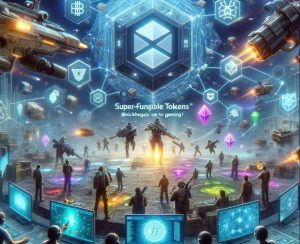How dangerous are central bank digital currencies?
3 min read
Whistleblower Edward Snowden is no friend of central bank digital currencies (CBDC). As early as October 2021, he described the idea, which was becoming increasingly popular among states, as a perversion of a blockchain, a “crypto-fascist currency”. In an interview with Marta Belcher, President of the Filecoin Foundation, the hacker reiterated his concerns: “The danger is very easy to spot”.
A CBDC is the digital version of a government currency backed by a central bank. Similar to other cryptocurrencies, certain properties can be “programmed” into it. While BTC and ETH are considered (more or less) decentralized due to their characteristics, CBDCs are centralized by design. They are subject to state control. Since 2020, governments around the world have been working to introduce central bank digital currencies.
China tested its e-yuan for the first time during the Beijing Olympics this February. The USA and Europe are also intensively researching the topic. The digital dollar is “top priority,” Joe Biden declared in a presidential decree this March. This is considered the starting signal for crypto regulation in the USA.
Central Bank Digital Currencies as a threat to freedom
Proponents expect many advantages from a CBDC for the state, its citizens and local companies. US economics professor Dr. Eswar Prasad wrote in autumn 2021 in the New York Times: “Because transactions via CBDC could be monitored and prevented at the same time, financial crime could be better detected and combated.” Small businesses would benefit from lower transaction fees. And during inflation, the Federal Reserve (FED) would have more options to take countermeasures. It could program the digital central bank money in such a way that it automatically decreases in the citizens’ accounts over time. The incentive to consume would stimulate the economy.
Edward Snowden sees the CBDC primarily as a threat to the financial independence of citizens. Governments could “increasingly restrict our freedoms to use money.” As an example, Snowden refers to the Canadian government’s handling of anti-corona measures protests in February 2022.
Truckers in Ottawa demonstrated for an easing of the measures, and the state responded with severe penalties, mainly of a financial nature. Millions in donations to protesters were confiscated from sites like GoFundMe. Then the Prime Minister of Canada declared martial law.
Snowden isn’t the only harsh critic of the CBDC
With extensive powers, he froze protesters’ bank accounts and forced insurance companies to cancel their policies. Centralized crypto exchanges like Coinbase have been asked by the government to block the accounts of sanctioned individuals. He also threatened donors with financial sanctions.
“For Canada of all people to do this, with a democratic and enlightened government, is a powerful example of why we should be concerned about this development,” Snowden said. “The government is able to take our money out of our wallets at the push of a button. That should alarm us. It doesn’t matter if you’re for or against this particular protest.”
Snowden isn’t the only harsh critic of introducing a CBDC. Jake Chervinsk of crypto lobby group Blockchain Association also warned Thursday of a “totalitarian nightmare” from the creation of central bank digital currencies. “The government would know what you are spending and where you are spending it at all times. She could program the CBDC any way she wanted and say, ‘You can only spend this dollar in certain places.’ It could freeze accounts or withdraw funds from accounts at any time.”






